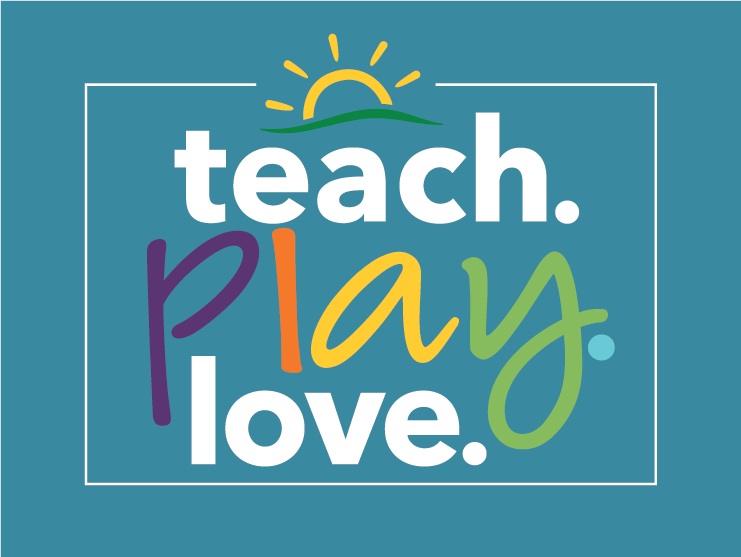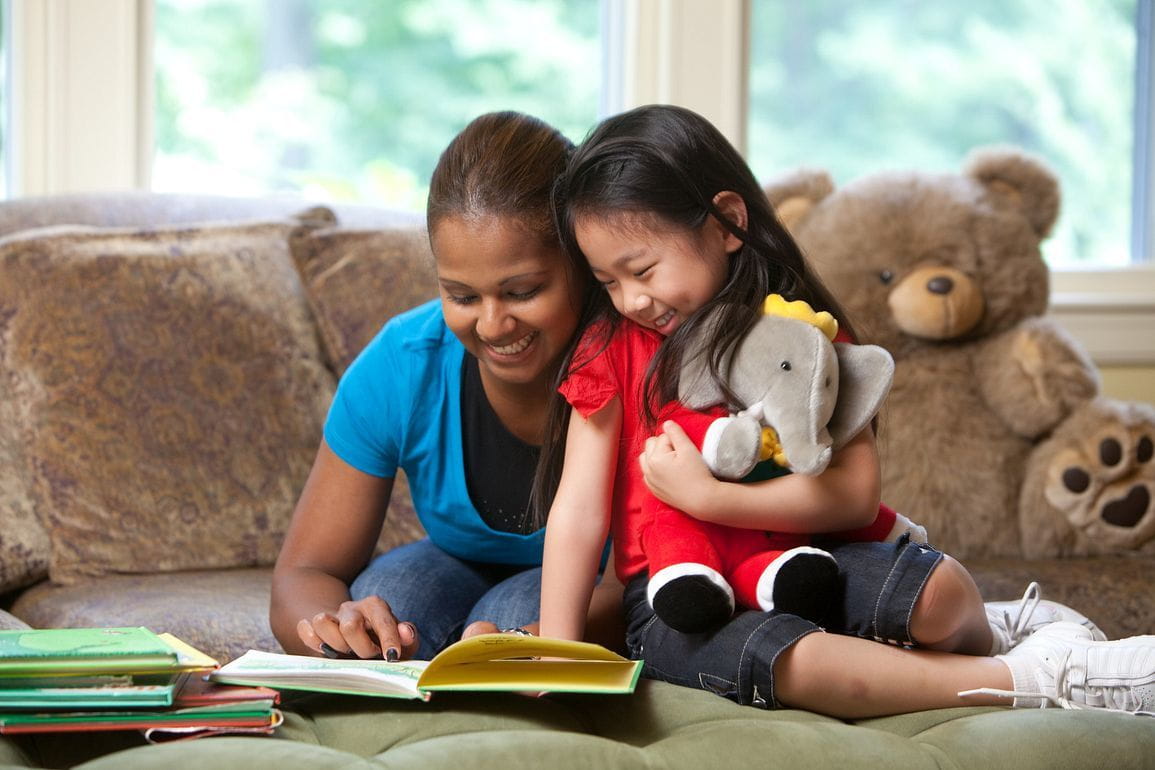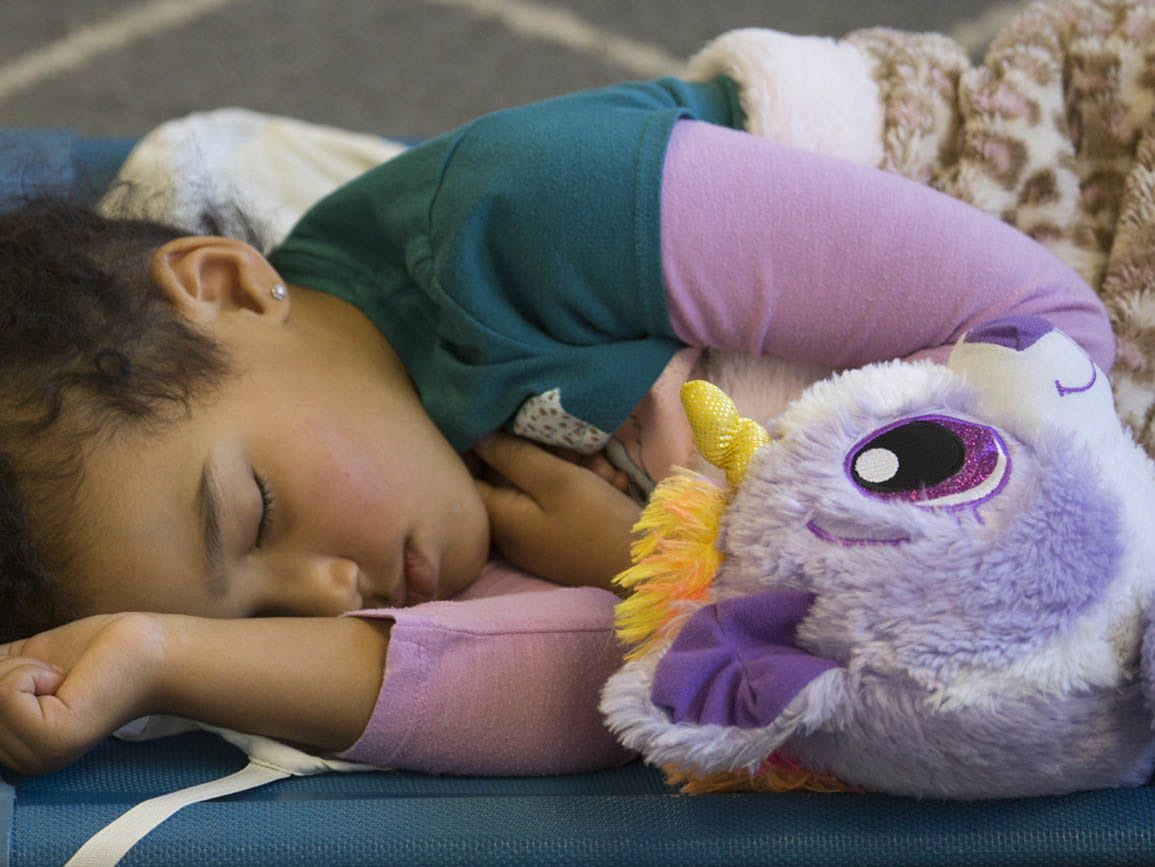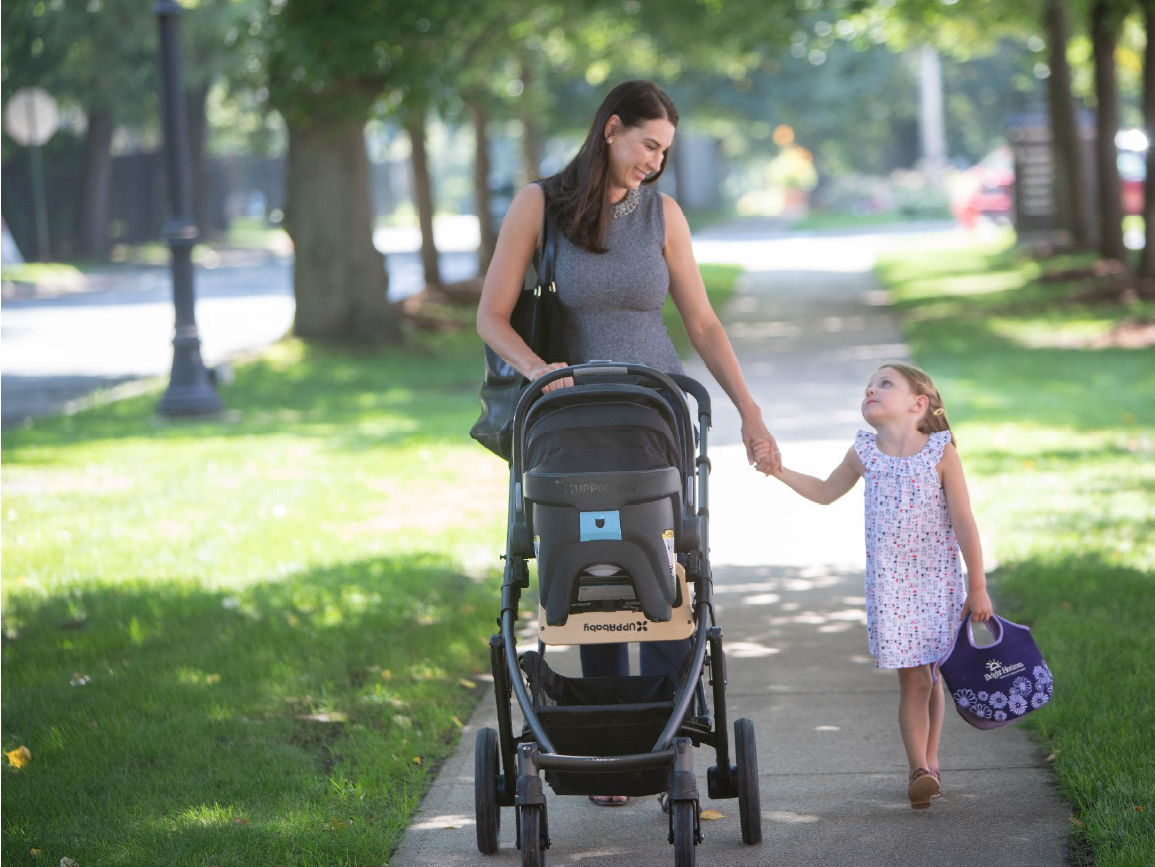Rachel: Hi Claire. How are you today?
Claire: Hi Rachel. I'm great. I'm happy to talk to you today about a question we're getting pretty frequently from parents the summer, about their children and language development, and COVID, and how this is all been shaking out the last year plus.
Rachel: Yeah. I've heard that question a lot too as we've been through a year of educators whether it's child care or schools have been wearing masks, children have been wearing masks. And it's been a long time, and parents have been concerned about young children's language development in that scenario with teachers wearing masks.
Claire: Yeah. And I know that parents, when they ask us this question are looking for a definitive answer, like "You should be worried," or, "It's gonna be fine." And the truth is, we don't actually know definitively because we don't have any research to support either of those statements. We, of course, at Bright Horizons are gonna be continuing to look at the research very closely as things unfold in the next, you know, six months to a year.
But, what we can tell you in the meantime is what we know about language development and child development, and things that we can do and talked about today that are gonna mitigate any potential negative effects that all that mask-wearing has had on language development.
Rachel: This is one of those topics that there's a lot of worry, a lot of concern, and a lot of opinions going on out there. So it's really important to make sure that you're looking to trusted resources and experts for answers. Hopefully, you feel that you're getting that here but also thinking about it in terms of where the resources are you're looking at online or when you're talking to others making sure that you're not just also listening to other people's worries and guesses about what's happening. Because, just like you said Claire, we don't know yet. We have to study the effects of the pandemic after it has happened, so we don't have all the conclusive data yet. But we do know a lot of things that are encouraging and give us cause to be optimistic.
So, first of all, the really important for everything we talk about is young children's brains are so malleable. There are so much development and change happening in these first years, they're programmed for a lot of change in different support for development. So we have such a wide window of opportunity. There is a big window for development.
The other time that the brains are like this is in the teen year. So, while it never closes, the window never closes, there are two big times development happens. And, as I say that, you probably can recognize, "Oh, yeah, in the first five years of life, children can even walk or talk when they start, and they're doing crazy amounts of both of those things by the time they're five." So we can see that in the same we see a lot of change in those teen years.
The other thing is we just look at how language develops. So we know that receptive language and that's listening and hearing, those abilities happen much sooner than expressive language or talking or being able to communicate what you're thinking. So if children are talking or expressing themselves, that doesn't mean they're not developing receptive language. Depends on their age that this is happening, of course, this is from we're thinking about infants and toddlers.
The other thing is that the kinds of development and support they need for language are not as sophisticated or structured as a lot of people think. What they need the most of is things like story reading and back and forth conversations, we call those serve and return conversations, where a parent is responding to a child, even if they're just babbling and gurgling, or making gestures as if that's a conversation and respecting that as a back and forth conversation. All of those things are happening right now. So that's good news. Those things are all possible when a teacher is wearing a mask or not.
And then the last thing I'd say for hopes of optimism is that we can look at research that has been done in scenarios that might be applicable. So, for example, if we look at research done with children that did not have any out-of-home early learning experiences and/or parents or family members that were supporting early language or literacy development, and then when they get that, they develop pretty fast. They're ready for it. They don't have long-term loss. They're able to catch up per se pretty quickly. Of course, there are situations where individual children are struggling, but this is in general. And so, that helps us think, that's probably going to happen in this case as well.
Claire: Yeah, absolutely. And I know that parents get concerned when they feel like their young children aren't meeting those textbook milestone moments for language development. And, absolutely, if you have any concerns, talk to your pediatrician about that, and they'll set you up with the resources that you need to explore that. Also, I just wanna remind everyone out there that child development does not move on a linear upward way. It is like a big squiggly line on a graph. And milestones happen at different rates for all children. Every child is different, and, in fact, there's a whole school of developmental theory about touchpoints that was developed by Berry Brazelton where he actually noticed that there can be a regression in skills right before a huge burst.
So, it might be that if you're noticing your baby or toddler is having a tricky time with language development, maybe, that they're not officially delayed, it might just be a little bit of a regression before a huge cognitive burst in language development, right? And if that overlaps with all the mask-wearing that we've been doing, that's just bad timing. But, you know, keep an eye on it, you know your child best, of course, and you can always check in with the experts in your life if you're feeling really worried about it. And there's just so much more to language development than watching lips move.
You know what it is really great for developing language skills is playing. And I know our regular listeners are thinking, "Oh, my goodness, you're talking about playing again." Yes, we are, because play helps in all areas of child development. Rachel and I will go blue in the face saying it, but those serve and return conversations where you're asking your baby a question and you're waiting for a response, and they're saying it back, peekaboo, sign language with them, that is language development in the form of play. You're playing with your baby, and then your toddler is the same way.
Any kind of labeling you can do. You're at the grocery store, you're labeling the fruits. You're talking about the colors, you're talking about the people walking by. You're listening to the music. It's all part of language development. It's all happening in the receptive and the expressive. So you don't have to get out worksheets and flashcards and all that stuff, you can just play, read books, sing songs. We actually have an amazing resource on our website if you look up World At Home on the Bright Horizons web page, we have a lot of at-home activities you can be doing with your children anytime that promote all areas of development, including language development. So definitely check that resource out. It's there for you.
Rachel: Yeah. One of my favorite quotes is from Magda Gerber and it is something to the effect of "Earlier is not better." As parents, we're always looking for a very understandably a physical sign, a visible sign that our child has developed a new skill. A lot of early language development is hard to see that, so we're looking for things like can they say their ABCs. Well, often, when they learn that ABC song, that's just pure memorization. They haven't actually learned anything about those letters. So it's really cute to listen to them say it.
I remember one of my daughters would just go, la, la, la to get through the elemental part. Because she had no idea what anyone was saying. But it is just a cute song for them at that point. They haven't connected those letters as symbols and sounds that make up words, that communicate something.
So, think about as you were talking about we're worried about maybe milestones, thinking about the milestones and really looking at what is happening in terms of how they're developing their full language and literacy skills, not just the manifestation of a whole bunch of behind the scenes work happening, and then all of a sudden they say something. So, you're right, there's a lot of other ways to develop language and literacy beyond the lip-reading, and there is a lot of it happening if you're having those natural experiences, whether it's with a teacher or with an adult.
I do wanna say that lip-reading is actually a part of language development. It is our default. I think, we've all noticed that as adults when we have been wearing masks. I've said to myself, "Wow, I didn't realize how much of lip-reading I did in life." That's just something unconscious we learned how to do to supplement our understanding or our hearing from someone. So it doesn't matter. But just remember that infants and children are not always with adults with masks on because that's not happening when they're at home.
So there's nothing that tells us that all day every day, every interaction they have to have requires lip-reading. So that's really important, and make sure that you're taking advantage of those moments when you're with them. So, make sure they can see your face when you're talking to them, and make sure you're having those really engaging back and forth conversations, yes, even with the baby, because they are talking to you. When they're shaking their arms around or they're opening their eyes wider, they're just babbling, that's a conversation. And they're learning through that that their communication is respected and you're going back and forth.
You can also introduce vocabulary or give them language. You can start teaching them about expressive language by saying, "I see you waving your hands around, that tells me that you're excited." Or if it's an older child, you can say the same thing. You just ran into this room full of excitement, I think you're enthusiastic. And start adding vocabulary words for them. And that's not a special activity or time you have to set aside, that just is happening in your daily interactions. So if you're mindful of these small and easy and playful ways to build and support language development and you'll be able to do them, no problem. In the car, on the commute, in the grocery store like you're staying, at home, bath time, storytime, breakfast, dinner, all day long, easy, no added activities needed.
Claire: That's right. The masks have been a real bummer. I know I'm grateful they've kept us healthy and safe. It has been difficult to keep them on and know that our kids are at school and their teachers are wearing them. But that said, like you said, there's plenty of other opportunities during their day when they're interacting with peers and with adults without the masks on. So just take advantage of those prime times as we call them and enjoy playing with your baby and your toddler.
Rachel: Exactly, exactly. And I'll just re-emphasize the play, the back and forth, children are learning their own language development. Even an imaginary play, reading books, talking about the words, practicing comprehension, talking about the sounds of the letters, and looking for those sounds, doing a sound hunt or a letter hunt wherever you are, singing songs together, those are the really important language-development activities. What is missed from the mask-wearing, we're very hopeful and again all signs point to being optimistic about that will rapidly catch up to where it would have been without the mask-wearing once we're back in those situations.
And you said this earlier, Claire, if you are concerned, if you feel, if you're looking at milestones, and you think there's a real delay, we don't know that that happened because of COVID. That just like pre-COVID, you would ask your pediatrician and talk to a specialist about that. But we're feeling and we're wearing contact with language development experts regularly, and they're feeling optimistic as well.
So, again, we'll all be paying attention to this. I'm very mindful of that and want to assure you when children are with us in Bright Horizons or in other places teachers are thinking about that. On top of children brains being rapidly developing and having a big wide-open window for development, they're also very resilient. And we can continue to nurture this and help them through challenges that they have to adapt to. A lot of children are adapting and being more resilient in the scenario than the adults are. So we just wanna make sure that we continue to support them. We show them we're okay, they're going to be okay, and it's very likely we'll all be okay.





